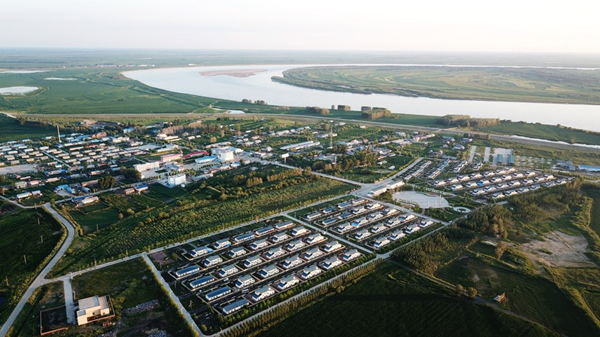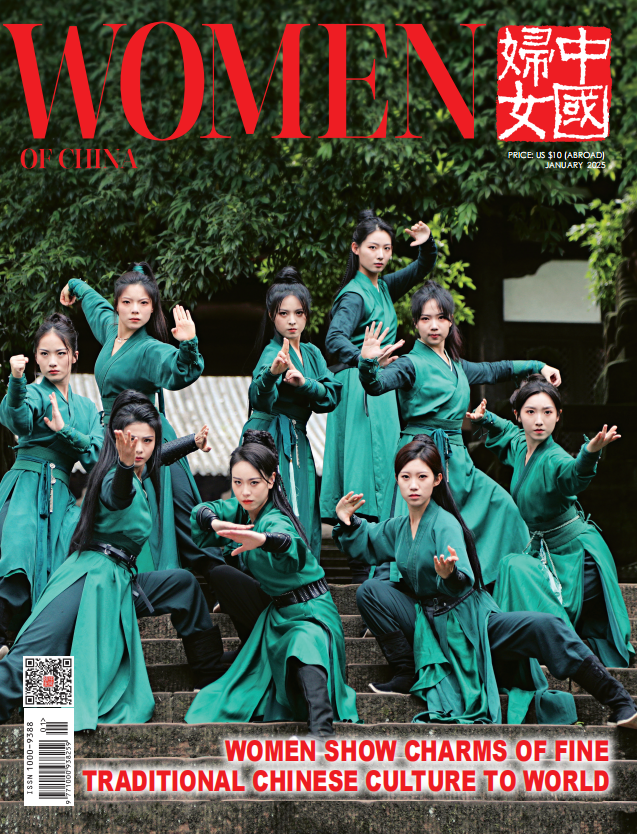Xi Story: Preserving and Carrying on Cultures of Ethnic Minority Groups
 |
| Aerial photo taken on July 21, 2020 shows the Bacha Village in Tongjiang City of northeast China's Heilongjiang Province. [Xinhua/Wang Jianwei] |
HARBIN, March 14 (Xinhua) — Every time Wu Guifeng performs a ballad unique to the Hezhen ethnic group, as an inheritor of Yimakan storytelling, memories flood her mind of a rainy afternoon when her village welcomed President Xi Jinping.
In May 2016, during an inspection tour in northeast China's Heilongjiang Province, Xi, also general secretary of the Communist Party of China (CPC) Central Committee and chairman of the Central Military Commission, went to Bacha village, Tongjiang City to honor a promise he made during the "two sessions" that year.
At a deliberation in which Xi participated, Liu Lei, a deputy to the National People's Congress, China's national legislature, said that people of the Hezhen ethnic group are living happy lives, just like the lyrics of "Boat Song on the Wusuli," and invited President Xi to visit her hometown.
Xi, who had known this song depicting the harmony and unity of the Chinese nation since childhood and can even hum its tunes, accepted the invitation.
After more than two months, the president undertook the inspection. At Bacha village, Xi watched an exhibition on folk customs and a class on Yimakan storytelling.
Narrated in the Hezhen language, Yimakan storytelling is essential to the worldview and historical memory of the Hezhen ethnic group, one of the smallest ethnic minority groups in China.
In 2011, it was inscribed on the list of intangible cultural heritage in need of urgent safeguarding by the United Nations Educational, Scientific and Cultural Organization. Since the 18th CPC National Congress in 2012, the preservation of the traditional culture of the Hezhen ethnic group has been strengthened.
In Bacha village, there is a center dedicated to the study and practice of Yimakan storytelling. Thanks to the joint efforts of national and local authorities, such centers can be found in other places in Tongjiang, with participants ranging from elderly people like Wu to primary school students.
In addition, the city has established a four-tiered system for Yimakan storytelling inheritors, starting from the county level to the national level.
Xi spoke highly of the cultural heritage during the inspection. On multiple occasions, Xi has shown great consideration for the preservation and inheritance of ethnic culture, stressing that the fine traditional cultures of all ethnic groups are an integral part of Chinese culture.
Over the years, Xi had expressed appreciation of an array of cultural heritages of ethnic minority groups, including "Epic of King Gesar," which is hailed as "the Homeric epics of the East," the Kirgiz ethnic epic "Manas," and Miao embroidery.
Such heritages are not just possessions of ethnic minority groups, but also valuable treasures in the vault of Chinese culture, Xi said.
(Source: Xinhua)
Please understand that womenofchina.cn,a non-profit, information-communication website, cannot reach every writer before using articles and images. For copyright issues, please contact us by emailing: website@womenofchina.cn. The articles published and opinions expressed on this website represent the opinions of writers and are not necessarily shared by womenofchina.cn.






.jpg)

 WeChat
WeChat Weibo
Weibo 京公网安备 11010102004314号
京公网安备 11010102004314号